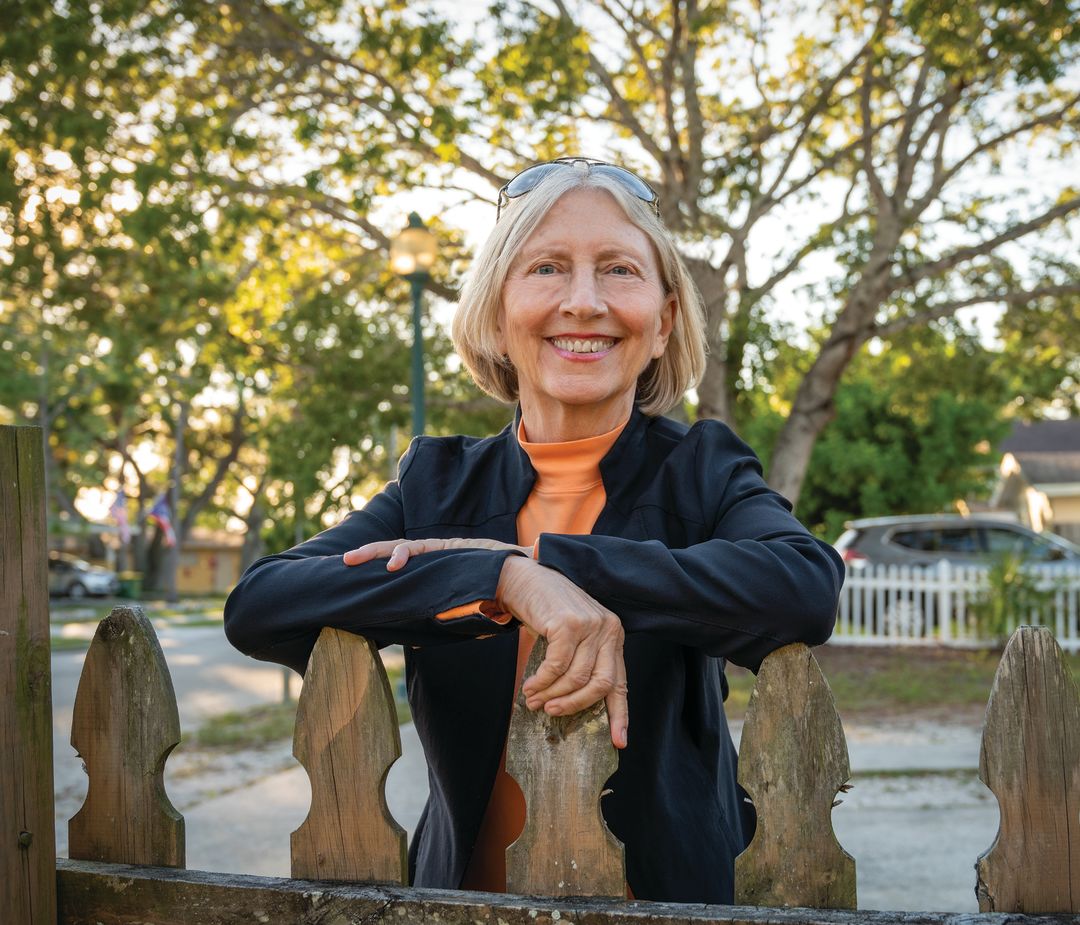Andrea Blanch Uses a Trauma-Informed Approach to Solve Social Conflict

Andrea Blanch
Image: Barbara Banks
At age 6, Andrea Blanch was told by doctors that she would never walk again. She was suffering from a severe case of rheumatoid arthritis and had missed a year and a half of school. She had a high fever and swollen joints. Her ankles, wrists and even her neck ballooned. After hearing her doctor’s prognosis, she thought to herself, “Who are they to tell me that I’ll never walk again? They don’t even know me.” She was told to not even sit up in bed, but after her parents went to sleep, she began to exercise and eventually taught herself to walk again. Today, she is the founder and director of Sarasota Strong, a community effort to prevent and address trauma.
“My career has been about empowering other people to see their own strength and giving tools away so that people have what they need to make change happen,” Blanch says.
The seed for the project sprouted nearly two decades ago. Blanch held senior administrative and policy positions in various state mental health authorities in the mid-’80s and throughout the ’90s. In 2000, she took a break and joined an interfaith spiritual group on a trip to Israel.
There, she saw that, despite the immense turmoil that existed in the Middle East at the time, rabbis and imams walked together, hand-in-hand, on the streets of Jerusalem as a way to show the potential for peaceful coexistence. Blanch and her friends decided to support these efforts in any way they could.
But that was just the beginning. The group launched The Center for Religious Tolerance, which became an umbrella organization for several projects. Along with her team, Blanch worked to support communities in places such as Palestine, Honduras and Kenya. Sarasota became a place of refuge for Blanch to put herself back together in between such intensive projects.
Now, her focus has turned to Sarasota itself. Blanch has brought what she’s learned across 20 years of peacemaking, women’s empowerment and community healing projects back home. Her work is led by a few key lessons: People know how to solve their own problems, social change needs a grassroots foundation, real change can be messy and doesn’t fit into neatly siloed program structures, and change happens in communities, not just in individuals. And, finally, “This is the big one,” Blanch says. “We really came to see that trauma and violence lie at the root of the most rancorous divisions in our society. Trauma lies underneath everything: housing, crime, substance abuse, employment problems.”
Engaging trauma-informed responses to social issues is the core work of Sarasota Strong, which started as a Center for Religious Tolerance project but is now taking its place. “We just started going around listening to people, and doing little events to bring some aspect of trauma to life and then we’d have a conversation with people about it,” Blanch says.
The organization finds people who are passionate about making change in their community, neighborhood or place of worship and wraps support around them. “Education is a huge component, teaching about the impact of trauma and building resilience,” she says. They host monthly events online and in person to empower trauma-informed conversations so that people and groups can heal themselves and support one another.
Blanch says the strongest tool is the simplest one: listening and validating a person’s experience. This simple act, she says, can open the door to healing. “A lot of people are carrying such high trauma loads that they literally can’t benefit from the opportunities available to them,” Blanch says, opportunities that include assistance with employment, escaping domestic violence or recovering from addiction.
“People have amazing strength and healing,” Blanch says. “They can do so much on their own. They just need somebody who believes in them. I think of it as my mission to see the strength in every human being and encourage them to
see that strength in themselves.”



